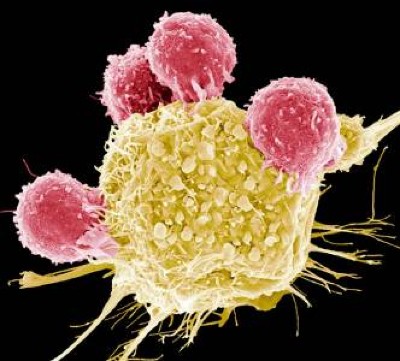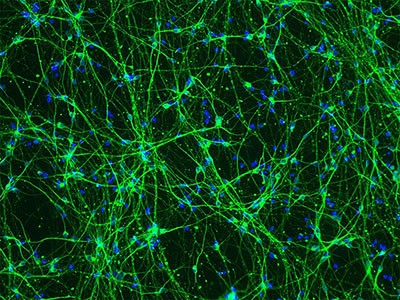[ad_1]
Bioengineered immune cells have been proven to assault and even treatment most cancers, however they have a tendency to get exhausted if the struggle goes on for a very long time. Now, two separate analysis groups have discovered a technique to rejuvenate these cells: make them extra like stem cells.
Each groups discovered that the bespoke immune cells known as CAR T cells acquire new vigour if engineered to have excessive ranges of a specific protein. These boosted CAR T cells have gene exercise much like that of stem cells and a renewed potential to fend off most cancers. Each papers had been revealed right now in Nature1,2.
The papers “open a brand new avenue for engineering therapeutic T cells for most cancers sufferers”, says Tuoqi Wu, an immunologist on the College of Texas Southwestern in Dallas who was not concerned within the analysis.
Reviving exhausted cells
CAR T cells are comprised of the immune cells known as T cells, that are remoted from the blood of individual who’s going to obtain remedy for most cancers or one other illness. The cells are genetically modified to acknowledge and assault particular proteins — known as chimeric antigen receptors (CARs) — on the floor of disease-causing cells and reinfused into the individual being handled.
However protecting the cells lively for lengthy sufficient to eradicate most cancers has proved difficult, particularly in strong tumours akin to these of the breast and lung. (CAR T cells have been simpler in treating leukaemia and different blood cancers.) So scientists are trying to find higher methods to assist CAR T cells to multiply extra shortly and last more within the physique.

Chopping-edge CAR-T most cancers remedy is now made in India — at one-tenth the associated fee
With this purpose in thoughts, a group led by immunologist Crystal Mackall at Stanford College in California and cell and gene remedy researcher Evan Weber on the College of Pennsylvania in Philadelphia in contrast samples of CAR T cells used to deal with folks with leukaemia1. In among the recipients, the most cancers had responded properly to remedy; in others, it had not.
The researchers analysed the position of mobile proteins that regulate gene exercise and function grasp switches within the T cells. They discovered a set of 41 genes that had been extra lively within the CAR T cells related to an excellent response to remedy than in cells related to a poor response. All 41 genes gave the impression to be regulated by a master-switch protein known as FOXO1.
The researchers then altered CAR T cells to make them produce extra FOXO1 than traditional. Gene exercise in these cells started to seem like that of T reminiscence stem cells, which acknowledge most cancers and reply to it shortly.
The researchers then injected the engineered cells into mice with varied sorts of most cancers. Further FOXO1 made the CAR T cells higher at decreasing each strong tumours and blood cancers. The stem-cell-like cells shrank a mouse’s tumour extra utterly and lasted longer within the physique than did commonplace CAR T cells.
Grasp-switch molecule
A separate group led by immunologists Phillip Darcy, Junyun Lai and Paul Beavis at Peter MacCallum Most cancers Centre in Melbourne, Australia, reached the identical conclusion with completely different strategies2. Their group was inspecting the impact of IL-15, an immune-signalling molecule that’s administered alongside CAR T cells in some scientific trials. IL-15 helps to change T cells to a stem-like state, however the cells can get caught there as an alternative of maturing to struggle most cancers.
The group analysed gene exercise in CAR T cells and located that IL-15 turned on genes related to FOXO1. The researchers engineered CAR T cells to supply extra-high ranges of FOXO1 and confirmed that they grew to become extra stem-like, but in addition reached maturity and struggle most cancers with out changing into exhausted. “It’s the perfect state of affairs,” Darcy says.

Stem-cell and genetic therapies make a wholesome marriage
The group additionally discovered that extra-high ranges of FOXO1 improved the CAR T cells’ metabolism, permitting them to final for much longer when infused into mice. “We had been stunned by the magnitude of the impact,” says Beavis.
Mackall says she was excited to see that FOXO1 labored the identical means in mice and people. “It means that is fairly basic,” she says.
Engineering CAR T cells that overexpress FOXO1 is perhaps pretty easy to check in folks with most cancers, though Mackall says researchers might want to decide which individuals and sorts of most cancers are almost certainly to reply properly to rejuvenated cells. Darcy says that his group is already talking with scientific researchers about testing FOXO1 in CAR T cells — trials that might begin inside two years.
And Weber factors to an ongoing scientific trial through which folks with leukaemia are receiving CAR T cells genetically engineered to supply unusually excessive ranges of one other master-switch protein known as c-Jun, which additionally helps T cells keep away from exhaustion. The trial’s outcomes haven’t been launched but, however Mackall says she suspects the identical system may very well be utilized to FOXO1 and that overexpressing each proteins may make the cells much more highly effective.
[ad_2]
Supply hyperlink

